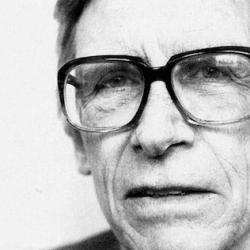Lenn Goodman’s essay in Theology and the Soul of the Liberal State presents a devastating critique of Rawlsian political liberalism. The fundamental issue, Goodman claims, is that Rawls treats individual decisions as public acts, and therefore believes that liberalism needs to curtail the influence of ideologies even in the voting booth (27).
For Rawls, this conflating of individual and public acts “rests on the recognition that in democracies it is no longer the monarch, but we who are the state. Indeed, Mill’s recognition of the power of social pressures might push the point further, to include as public discourse even reflections far removed from public deliberations” (27).
The liberal state has to found political action and speech on reasons that “fellows citizens would see as reasonable.” This limitation, Rawls thinks, doesn’t apply only to the acts of the state itself – e.g., a judicial decision or a defense of legislation or a speech on the floor of Congress.
Rawls says that democracy “implies an equal share in the coercive political power that citizens exercise over one another by voting and in other ways” (quoted 25). Voting cannot be considered “a private and personal matter” since, in Goodman’s words, “political speech aims at the direction of public policy and is thus ultimately coercive, palpably so in any appeal to standards not universally deemed reasonable” (25-6).
Goodman finds this “strange”: “proposals are not legislation. And reasoning, even when compelling, is not coercive in the way that laws are. Rawls seems to brand as unfair any appeal to thoughts that we do not already hold. He fights shy of saying that everyone must reach the same conclusions but insists that we should invoke only grounds that all citizens will find reasonable. That still seems to mean that we should never have to hear proposals grounded in ways we might find novel, revolutionary, or instructive” (25-6).
Goodman argues that the argument can be turned against Rawls: “Hasn’t Rawls violated his own standard by urging ground rules for public discourse that at least one hearer might find problematic?” This isn’t the worst of it: “Rawls’s rule is not just self-undermining but oppressive. If the threat of sanction makes political speech uncivil, the blandest political speech will seem uncivil to some, and the blander the worse, for concealing an iron fist in a velvet glove. There are some who imagine all law to be downright uncivilized. But they object to government of any sort, not to public discourse” (25-6.
In short, “How can we deliberate if we do not share and air our views? Or deliberate honestly if we do not spell out our reasons?” (25-6).
Rawls’s sets things up in a way that disadvantages religion and other “comprehensive ideas” in public debate: “isn’t there a bias showing if we, say, silence arguments against gay marriage if they appeal to scripture but permit arguments for gay rights that hold sexual relations to be purely a private matter? Both sets of suasions rest on something like an outlook on life. Is one to be banned and the other, well scrubbed in secularity, welcomed for its seeming universality? Will there be tribunals to decide which views are comprehensive or most likely to seem reasonable to all fellow citizens?” (26).
According to Rawls, “advocacy of some one notion of the good, pled as a guide to policy, amounts to a substitution of judgment.” Goodman responds that it is illiberal to exclude “arguments thought by their exponents to be their very best” (26).
A liberal state cannot “suppress arguments that voice the deepest convictions of its members, or those that they expect most to resonate most effectually with the convictions of the hearers whose hearts and minds they hope to win over.” To restrict the values that an advocate can appeal to is “to straitjacket both thought and action and predefine their tenor—just what we reject and abhor in totalitarianism. It is the same horror that motivates Rawls’s proposals. But, like any reaction, Rawls’s risks overstating its case and rushing headlong into unforeseen dangers, including some that it most earnestly sought to avoid” (27).
But then we have to take the next step, because not only citizens but states have to be concerned for the “content of life and action” (27). A liberal state cannot be indifferent to the capacity of citizens to make informed judgments – “incapable of exercising the very freedoms that are the raison d’etre of a liberal polity.” Liberal states reject paternalism, but that is “a bitter charade in a society that fails to cultivate the capacity for choice that liberalism professes to regard” (27).
In short, “Independent judgment is a mockery in a society of addicts or alcoholics. A populace in thrall to illiteracy, xenophobia, or superstition, whether by policy or neglect, will find no more meaning in exercise of the franchise than does the poor man who learns that new laws give him the same right as the rich to sleep under the bridges of Paris” (27). Liberal states must, in short, make some commitment to some goods, or else they will cease to function as liberal states.
Rawls’s appeals to reason to decide disputes about values doesn’t get him out of the corner. There are, after all, “rival views of reason’s dicta and rival appraisals of its worth” (28). According to Goodman, he answers with an appeal to culture: “we assume that all citizens have a rational plan of life that requires for its fulfillment roughly the same kind of goods. . . . This assumption is of great importance for it enormously simplifies the problem of finding a workable index of primary goods. Without restrictive assumptions of this kind, the index problem is known to be insoluble” (quoted 28).
Rawls aims for a “lowest common denominator,” which, Goodman says, amounts to using money as the consensus standard of value. This is “a huge stipulation. For despite its usefulness in equilibrating deserts, few would make money the sole and simple lowest common denominator of public or private good” (28).
Goodman ultimately charges that Rawls’s position is anti-pluralistic. He is as eager to find an unquestioned and unquestionable consensus as any tribalist: “Where is the culture or society whose members share a single life plan? Even in the tightest human group individual differences loom large. Isn’t it the role of government, and of politics in general, to help us find a way of living together and indeed collaborating, even though our life plans and underlying values differ substantially? Money helps, because it fosters independence. But it does not bridge our value differences. Rawls’s demand for homogeneity, like his posit of a ‘closed society’ whose members are born into citizenship, makes his model brittle, artificial, and tendentious” (28).












